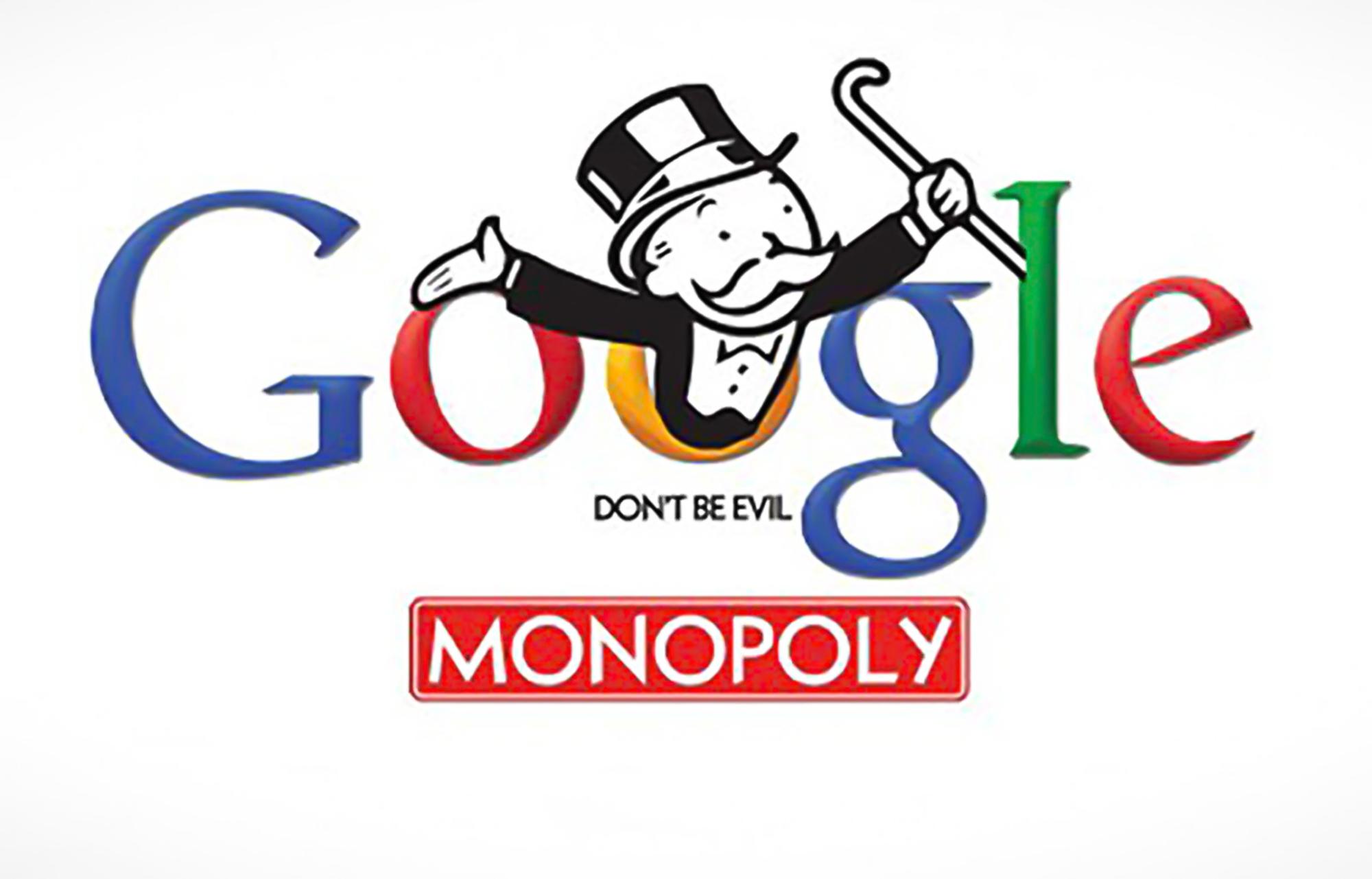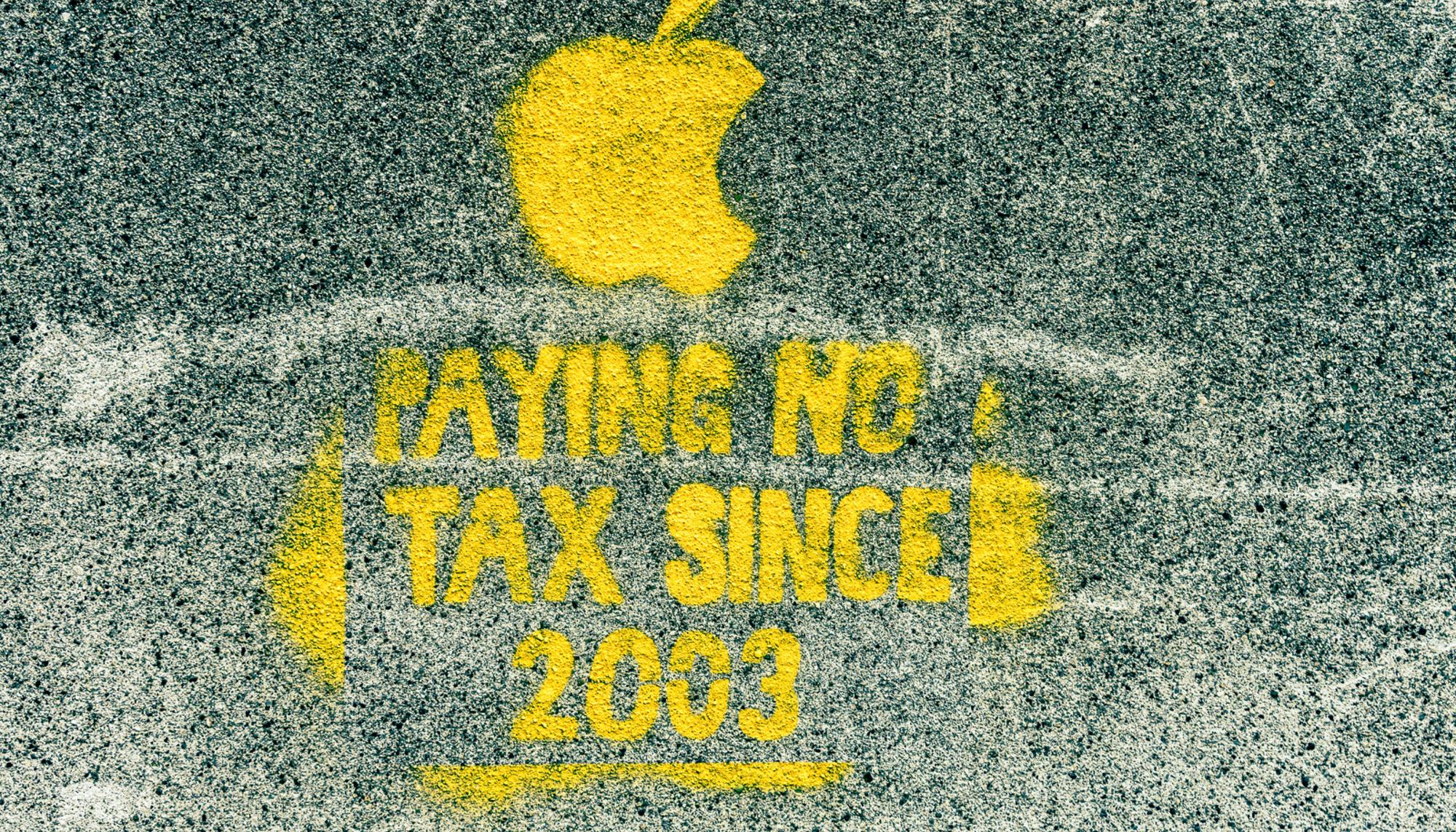We can't find the internet
Attempting to reconnect
Something went wrong!
Hang in there while we get back on track
Google
Google quiere tus datos (también) para ser tu banco
El gigante tecnológico Alphabet, matriz de Google, obtiene licencias en Lituania e Irlanda para poder ofrecer servicios bancarios en toda la Unión Europea y anuncia que usará los datos de los clientes para ofrecer servicios personalizados.

Coordinador de la sección de economía
El pasado 28 de diciembre Google obtuvo una licencia por parte del gobierno de Lituania, uno de los países en los que es más fácil obtener este tipo de permisos, para funcionar como una fintech —empresa tecnológica que actúa en el sector financiero—. El martes día 8 fue Irlanda la que concedió a la multinacional la licencia para operar como “entidad de pago”. Estas dos nuevas licencias abren la posibilidad de ofrecer un amplio abanico de servicios financieros, no solo en esos dos países, sino en el conjunto de los Estados miembro de la Unión Europea.
El gigante tecnológico llevaba tiempo intentándolo, y lo ha conseguido. Después de todo, el sector bancario es uno de los más rentables y apetecibles del mercado, y las grandes empresas tecnológicas no se iban a quedar mirando como el todopoderoso sector financiero no compartía el gran pastel.
Bajo estas nuevas licencias, Google Payment Ireland podrá ofrecer servicios de tarjetas de crédito y débito, operaciones de cambios de divisas o transferencias de usuarios, entre otras operaciones. Google Payment Lithuania UAB podrá realizar transacciones de pago, emitir dinero electrónico, ofrecer y gestionar monederos electrónicos, envíos de dinero o transferencias.
Otras grandes del sector de la tecnología y los datos, Facebook y Amazon, tampoco se han querido quedar atrás en esta carrera y han obtenido licencias parecidas en Irlanda y Luxemburgo respectivamente, pero con ciertas diferencias a las obtenidas ahora por la empresa del conocido buscador. “Digamos que existe una carrera de adquisición de todo tipo de distintas licencias para conquistar el sector financiero y operar de la misma forma que un banco”, explica a El Salto Ekaitz Cancela, periodista y escritor que publicará en febrero su nuevo libro Despertar del sueño tecnológico (Akal, 2019), sobre esta batalla de las tecnológicas por hacerse con el sector financiero. “Por ejemplo, Amazon ha registrado 33 millones de clientes, desde 2016, para su servicio Amazon Pay y ha otorgado préstamos por un total de 3.000 millones a pequeñas empresas”, explica el periodista.
La empresa tecnológica no tiene licencia bancaria plena, o ficha bancaria, por lo que no podrá ofrecer algunos servicios, como los depósitos. Lo que le deja, de momento, fuera de uno de los principales servicios y negocios del sector financiero tradicional. Aunque, para Cancela, esto no es casual: “Ninguna quiere ser un banco, es decir, no quieren someterse a su regulación, pero cualquier otra entidad bancaria puede aliarse con ellos para agregar millones de nuevos clientes a cuentas de cheques, ahorros y diversas formas de préstamos”.
El divulgador Paul Mason no cree que sus ojos vuelvan a ver otra crisis del capitalismo y también considera que ahora es más fácil imaginar el fin del mundo que imaginar a Facebook enseñando públicamente su algoritmo.
Capitalismo
Paul Mason: “Los gobiernos tienen que dar un paso al frente y romper el monopolio de Facebook”
CONOCEN Y USARÁN TUS DATOS
Pero, según han anunciado, existe un tipo de servicio añadido que Google pretende ofrecer y que se basa en la misma fuente y recursos en la que se centran todos los negocios y filiales de Alphabet: el uso de nuestros datos. La multinacional podrá utilizar dichos datos para “ofrecer a clientes análisis detallados de sus patrones de consumo, a fin de diseñar planes financieros y presupuestarios personalizados”. De ese modo, la gigantesca acumulación de datos por parte de las grandes empresas tecnológicas podría ser utilizada para reorientar nuestras finanzas, ahorro o consumo.
Este nuevo tipo de utilidad de los datos en las finanzas puede tener sus ventajas desde el punto de vista de la eficiencia y la comodidad, ya que el uso del big data para crear perfiles sobre los usuarios de acuerdo a sus capacidades económicas —gracias a métricas sobre sus ingresos, consumo, posibilidades de ahorro o endeudamiento— pueden maximizar la utilidad que tiene una persona en la economía.
Pero el excesivo control de dichos datos por parte de muy pocas empresas, así como la extensión del uso del big data a sectores que van desde la medicina a la movilidad, tiene sus críticas y detractores. “Esto significa que el gran capital administra cada aspecto de la vida de una persona de manera racional mediante la tecnología —critica Cancela— ya que estas compañías han creado una infraestructura sobre la que tiene lugar toda nuestra vida —consumo y producción— y ahora pueden convertir cada instante de la vida en un servicio”.
Los largos brazos de estas grandes empresas tecnológicas parecen expandirse por todos los ámbitos de nuestra vida cotidiana. Nuestras actividades bancarias y financieras parecen el siguiente paso, aunque no parezca que sea el último. “Es el poder corporativo determinando cada instante de la existencia humana”, sentencia Cancela.
Relacionadas
Economía
Fiscal Impuestos de Trump: subida a los consumidores y protección a Silicon Valley
Evasión fiscal
Monopolios Europa sanciona con más de 15.000 millones a Apple y Google
Juicio al gigante tecnológico Google viola la legalidad para mantener su monopolio en las búsquedas de internet
That murder charges are not levied against corporations, and that corporations do not express shame at their own actions, is a direct result of the peculiar nature of corporations — their split personality, if you will. Though human beings work inside corporations, a corporation itself is not a person (except in the legal sense) and does not have feelings. A corporation is not even a thing. It may have offices or a factory where it manufactures products, but a corporation does not have any physical existence or form — no corporality. So when conditions in a community or country become unfavorable — safety standards are too rigid, or workers are not submissive enough — a corporation can dematerialize and rematerialize in another town or country. This tendency is dramatically accelerated under the new free-trade agreements. If a corporation is not a person or thing, then what is it? Basically, it’s a concept that is given a name and a legal existence on paper. Though there is no such creature, our laws recognize the corporation as an entity. So does the population. We think of corporations as having concrete form, but they truly exist only on paper and in our minds. Even more curious is the way our laws give this nonexistent entity a great many rights similar to those given human beings. The law calls corporations “fictitious persons,” with the right to buy and sell property or to sue in court for injuries. And corporate “speech” — advertising and public relations — is protected under the First Amendment. This right has been extended to corporations despite the fact that, when the Bill of Rights was written in 1792, corporations as we now know them did not exist. (The First Amendment was originally intended to protect personal speech in a century when the media consisted only of single-page news sheets, handbills, and books. The net result of expanding First Amendment protection to include corporate speech is that $150 billion in advertising from a relative handful of sources gets to dominate public perception, free from nearly all government attempts at regulation.) Though corporations enjoy many “human” rights, they are not required to abide by human responsibilities. Even in cases of negligence causing death or injury, the state cannot jail or execute the corporation. In rare instances, individuals within a corporation can be prosecuted if they perpetrate acts that they know will cause injury. And a corporation may be fined or ordered to alter its practices, but its structure is never altered — its “life” is never threatened. Unlike human beings, corporations do not have to die. A corporation usually outlives the human beings who are a part of it, even those who own it. A corporation actually has the potential to be immortal. Lacking the sort of physical, organic reality that characterizes human beings, this entity, this concept, this collection of paperwork called a corporation is not capable of such feelings as shame or remorse. Instead, corporations behave according to their own unique system of standards, rules, forms, and objectives.
https://www.thesunmagazine.org/issues/264/the-rules-of-corporate-behavior
From the book “Empire of Illusion: The End of Literacy and the Triumph of Spectacle”, by Chris Hedges:
Corporations are ubiquitous parts of our lives, and those that own and run them want them to remain that way. We eat corporate food. We buy corporate clothes. We drive in corporate cars. We buy our fuel from corporations. We borrow from, invest our retirement savings with, and take out college loans with corporations and corporate banks. We are entertained, informed, and bombarded with advertisements by corporations. Many of us work for corporations. There are few aspects of life left that have not been taken over by corporations, from mail delivery to public utilities to our for-profit health-care system. These corporations have no loyalty to the country or workers. Our impoverishment feeds their profits. And profits, for corporations, are all that count.
The corporation is designed to make money without regard to human life, the social good, or the impact of the corporation’s activities on the environment. Corporation bylaws impose a legal duty on corporate executives to make the largest profits possible for shareholders. In the 2003 documentary film The Corporation by Mark Achbar, Jennifer Abbott, and Joel Bakan, management guru Peter Drucker tells Bakan: “If you find an executive who wants to take on social responsibilities, fire him. Fast.” And William Niskanen, chair of the libertarian Cato Institute, says that he would not invest in a company that promoted corporate responsibility.
A corporation that attempts to engage in social responsibility, that tries to pay workers a decent wage with benefit, that protects workers’ rights, that invests its profits to limit pollution, that gives consumers better deals, can actually be sued by shareholders. Robert Monks, an investment manager, says in the film: “The corporation is an externalizing machine, in the same way that a shark is a killing machine. There isn’t any question of malevolence or of will. The enterprise has within it, and the shark has within it, those characteristics that enable it to do that for which it was designed.”
Ray Anderson, the CEO of Interface Corporation, the world’s largest commercial carpet manufacturer, calls the corporation a “present-day instrument of destruction” because of its compulsion to “externalize any cost that an unwary or uncaring public will allow it to externalize.”
“The notion that we can take and take and take and take, waste and waste, without consequences, is driving the biosphere to destruction,” Anderson says.
The film, based on Bakan’s book The Corporation: The Pathological Pursuit of Profit and Power, asserts that the corporation exhibits many of the traits found in people clinically defined as psychopaths. Psychologist Robert Hare recites in the film a checklist of psychopathic traits and ties them to the behavior of corporations:
• Callous unconcern for the feelings for others;
• Incapacity to maintain enduring relationships;
• Reckless disregard for the safety of others;
• Deceitfulness: repeated lying and conning of others for profit;
• Incapacity to experience guilt:
• Failure to conform to social norms with respect to lawful behavior.
And yet, under the American legal system, corporations have the same legal rights as individuals. They make contributions to candidates. They fund 35,000 lobbyists in Washington and thousands more in state capitals to write corporate-friendly legislation and defang regulatory agencies. They saturate the airwaves, the Internet, newspapers, and magazines with advertisements promoting their brands as the friendly face of the corporation. They have huge legal teams, tens of thousands of employees, and scores of elected officials who ward off public intrusions into their affairs or lawsuits. They hold a near monopoly on all electronic and printed sources of information. A few media giants, such as AOL Time Warner, General Electric, Viacom, Disney, and Rupert Murdoch’s NewsGroup, control nearly everything we read, see, and hear.
La formación progresiva de la skynet ya está aquí, en una década, quien sabe donde llegará su poder. Curiosamente seguimos pensando que somos libres con cada vez mas tiempo consumido a diario en navegar en el nuevo DIOS, internet.yo no se vosotros, pero cada año que pasa me siento mas desorientado que nunca.
Definitivamente, las plataformas se quitan la careta del gratis total.















.jpg?v=63911839851)












